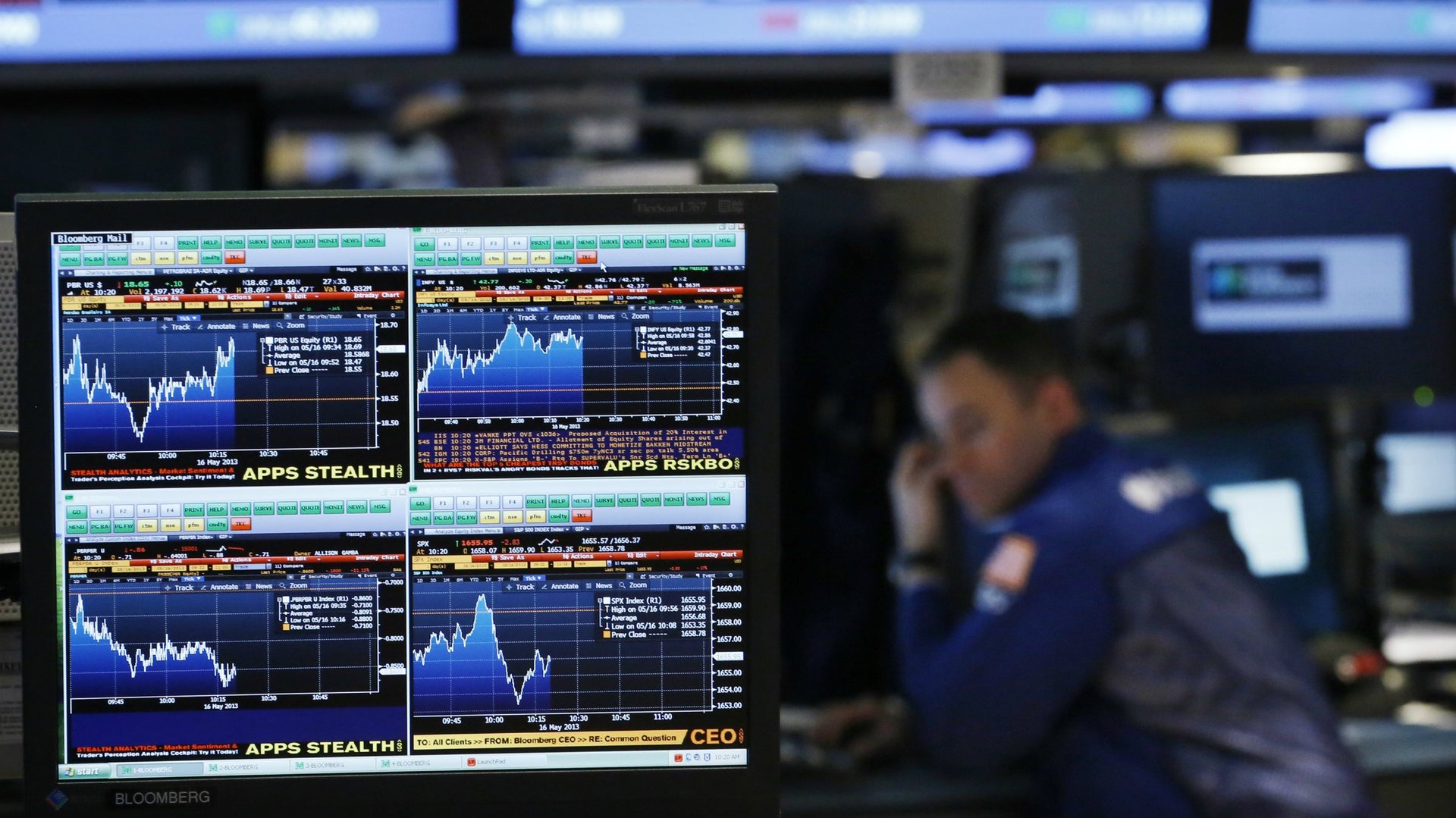Why Thomson Reuters and Markit could give Bloomberg a run for its money
The privacy scandal that shook Bloomberg in May could be coming back to bite it. Today, Markit and Thomson Reuters formally announced their new messaging system for finance professionals, Market Collaboration Services. It seems designed to compete with the chat function on Bloomberg terminals, to which Bloomberg owes part of its dominance as a data provider. The two companies said today that Bank of America Merrill Lynch, Barclays, Citi, Credit Suisse, Deutsche Bank, Goldman Sachs, JP Morgan Chase and Morgan Stanley were all on board.


The privacy scandal that shook Bloomberg in May could be coming back to bite it. Today, Markit and Thomson Reuters formally announced their new messaging system for finance professionals, Market Collaboration Services. It seems designed to compete with the chat function on Bloomberg terminals, to which Bloomberg owes part of its dominance as a data provider. The two companies said today that Bank of America Merrill Lynch, Barclays, Citi, Credit Suisse, Deutsche Bank, Goldman Sachs, JP Morgan Chase and Morgan Stanley were all on board.
We’ve written before that Thomson Reuters will have a hard time unseating Bloomberg. But traders, bankers, and other financial services professionals we’ve spoken to over the last few months have raised a number of points that lead us to believe that Thomson Reuters and Markit could be more successful than we thought:
Concerns about snooping and data privacy really shook bankers up. In May, Bloomberg admitted that its reporters had access to information about its customers’ usage of their Bloomberg terminals, and there were complaints that they were using it to write stories. Though the fury may have faded, the message has not; third-party technology can pose a threat to the secrecy of the firm. The Markit/Thomson Reuters offering was created in close collaboration with banks and is more customizable, so it may enjoy a certain level of trust.
Not everyone needs a Bloomberg. Bloomberg terminals cost around $20,000 per year, something Wall Street has long seen as a necessary evil. But maybe no longer. “For some big banks, it’s an incredibly expensive instant messaging device,” an executive at one market infrastructure company told the Financial Times (paywall). “They’re saying, ‘we’re spending $120m a year on Bloomberg. That needs to come down’.”
Sharing is caring… about costs. Major banks have already made the decision that employees can share a terminal in some cases, and used the savings to buy cheaper plans from Thomson Reuters that can be customized to fit an employee’s role. A commodities trader, the thinking goes, doesn’t need all the same tools a banker advising on tech mergers does. By contrast, Bloomberg terminals are one-size-fits-all; if you buy a terminal, you have to take all the features it offers even if you don’t need them.
This is already happening; one banker who was not authorized to speak on his bank’s behalf said his team had seen its number of Bloomberg terminals cut down to one, replaced by Thomson Reuters Eikon terminals. The team shares the remaining Bloomberg terminal.
A stand-alone chat function makes a lot of sense. In an email, Thomson Reuters said it “aims to create the largest financial markets messaging community and remove barriers to cross-market communication.” This means installing the messaging service on as many machines as possible, even ones that don’t even receive data feeds. Therefore, employees across the business could have access to the secure chat feature. If fewer bankers have their own Bloomberg terminals, they will need an alternative chat service to communicate with those colleagues that don’t have them.
Clearly, this isn’t a transition that will happen overnight. But with cost pressures mounting and reception already warm, Markit and Thomson Reuters seem to have a better shot at taking on Bloomberg than you might think.
Bloomberg declined to comment.